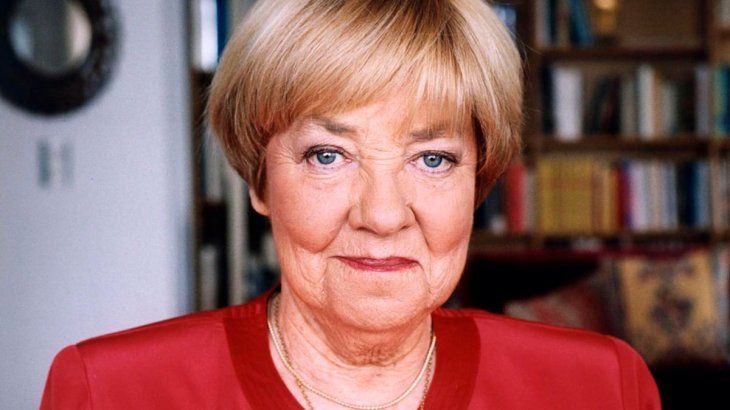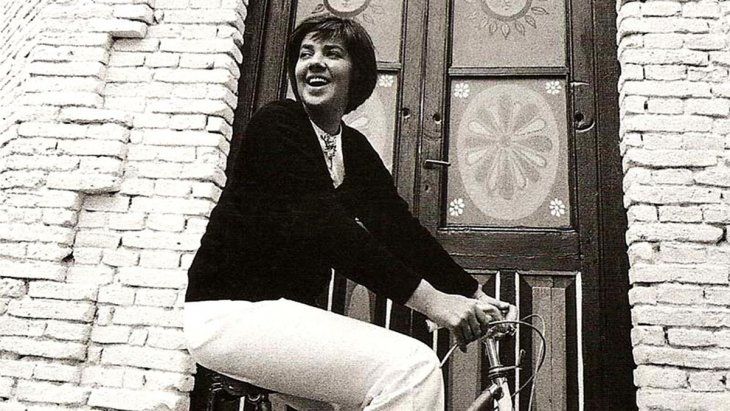Maria Elena Walsh.jpg
telam
From the first songs like “March of the Hype King” Y “The Confit Cat”quickly the list of songs expanded without losing impact or novelty with “The Studious Cow”, “Fisherman’s Song”, “The Upside Down Kingdom” Y “Song of Titina”among others from Walsh’s first creative stage.
With musical theater performances giving it context, such as the case of the event of “Songs to Watch”the artist brilliantly expanded that list with “The Moth Family”, “Milonga of the oven”, “The Painted Bird”, “Sneeze Song”, “Monkey Jacinta”, “Gardener’s Song”, “Vaccine Song”, “Dress Up Song”, “The Gulubú Sorcerer”, “Song to Bathe the Moon”, “Tea Drinking Song”, “The Sweet Potato Queen”, “Manuelita the Turtle”, “The Dachshund Show”, “Chacareer of cats” Y “Baguala de Juan Little”the more
In 1958, the television director Maria Herminia Avellaneda, prompted Walsh to write his first scripts for soap operas or children’s programs. Ten years later, Walsh premiered his first adult song show. “Let’s play in the world. Recital for executives”a repertoire imbued with the rebellious air of the times –pacifism, feminism, “protest” against social injustice– but showing a unique poetic talent.
María Elena Walsh and the censorship of the dictatorship
In 1978, at the height of the military dictatorship, she decided to definitively stop performing theatrical performances, fed up with the obstacles of censorship.
The most notorious example was that of “The Smooth Monkey Twist”, one of Walsh’s best-known songs. The song was popular since it appeared on the album “Doña Disparate y Bambuco” in 1962, whose star was Manuelita the turtle. Although there was no official banning decree, the song was on the military’s musical “black list,” which was found years after the return of democracy and included some 150 highly varied tracks.
Other songs by María Elena Walsh that were censored were “The Cicada” Y “Gilito from Barrio Norte”. The artist stopped singing in public in 1978 due to the pressure she received from the military and several of her songs became symbols of the fight for democracy.
The return of democracy and its last years
In 1983, committed to the restoration of democracy in the most diverse spheres, she participated more or less directly in political projects, to finally end up in the transformation of her guild, the Argentine Society of Authors and Composers, where her contribution to the Cultural Department it was decisive.
Maria Elena Walsh.jpg

He did not abandon childhood and presented novels for boys “Manuelita, where are you going?” (1997), Pioho’s Palace Hotel (2002) and “How much do I count!” (2004). In 2008 she published in book form, for the first time, the original stage version of “Songs to Watch” Y “Doña Disparate and Bambuco”.
She received innumerable national and international recognitions, among which are: Distinguished Citizen of the City of Buenos Aires, Konex Platinum and Honor Award in Letters, Highly Commended by the Hans Christian Andersen Award from IBBY (Denmark), Honor Award from FNA and Doctor Honoris Causa from the University of Córdoba
Maria Elena Walsh He died on January 10, 2011 in Buenos Aires, his remains rest in the SADAIC pantheon of the Chacarita Cemetery.
Source: Ambito
I am an author and journalist who has worked in the entertainment industry for over a decade. I currently work as a news editor at a major news website, and my focus is on covering the latest trends in entertainment. I also write occasional pieces for other outlets, and have authored two books about the entertainment industry.




